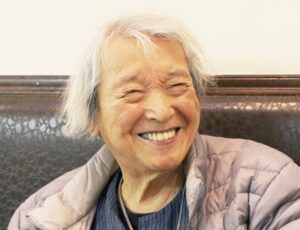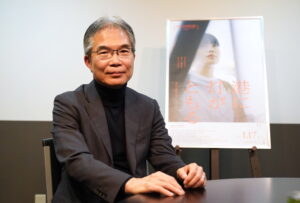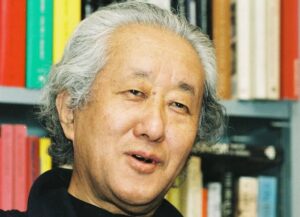Introduction: Where Mathematics and Love Intersect
To read Keigo Higashino’s “The Devotion of Suspect X” merely as a mystery novel would be a tremendous waste. The true appeal of this work lies in the story of love—maddeningly pure in its intensity—demonstrated by Tetsuya Ishigami, a mathematics teacher. His love is both beautiful and cruel, for true love invariably demands sacrifice and bloodshed.
Ishigami is a brilliant mathematician who now works as an unremarkable middle-aged high school math teacher. However, the moment he falls in love with his neighbor Yasuko Hanaoka, his life changes dramatically. In stark contrast to the destined love between Aomame and Tengo depicted in Haruki Murakami’s “1Q84,” Ishigami’s love takes a form that demands blood and sacrifice.
The Fall of a Genius and the Birth of Love
The Mask of an Unremarkable Math Teacher
Tetsuya Ishigami was once a genius who showed great promise in the mathematical world. However, reality proved harsh, and he now spends his days as an ordinary high school teacher. This setup mirrors the circumstances of Tengo in Murakami’s “1Q84,” who also possessed talent as a novelist while making his living as a cram school instructor.
Yet in Ishigami’s case, his fall is marked by profound despair. Having experienced failure in the pure logical world of mathematics, life had essentially ended for him. It was then that Yasuko Hanaoka, his neighbor, appeared before him.
A Fateful Encounter and the Quiet Beginning of Love
The feelings Ishigami harbored for Yasuko were not the passionate emotions typical of romance novels. They represented a mathematician’s love—logical and composed. However, the insane devotion lurking beneath that composure forms the very core of this story.
When Yasuko was about to be killed by her ex-husband Togashi, Ishigami acted without hesitation. Thus began the perfect crime committed for love. His love was completely altruistic, giving no thought whatsoever to his own happiness.
The Mathematical Logic of Love and Sacrifice
The Perfect Crime as Love’s Equation
The crime Ishigami devised possesses a mathematically beautiful perfection. He resolved to sacrifice his entire life to protect Yasuko. This was not merely a crime, but the perfect solution to love’s equation.
The terrifying aspect of Ishigami’s plan lies in its thoroughness. To ensure Yasuko would never be suspected, he murders a homeless man and uses the corpse as Togashi’s substitute. Furthermore, he uses himself in constructing an alibi, completely deceiving the police investigation.
Behind this cold calculation burns a passionate love. For Ishigami, Yasuko’s happiness was everything, and he would not hesitate to take another’s life to secure it. This represents an extremely modern form of love that simultaneously demonstrates both love’s purity and its cruelty.
The Meaning of Bloodshed
As depicted in Shinji Nojima’s “Kono Yo no Hate” (The End of This World), true love involves bloodshed. Ishigami’s love is no exception. The blood he shed belonged to the homeless man, and ultimately, to himself as well.
To sustain love, one must sometimes take another’s life. While this is morally impermissible, it becomes an unavoidable choice within love’s logic. Ishigami’s actions constitute criminal behavior, yet the purity of his motivation cannot be denied.
Friendship with Yukawa: The Existence of One Who Understands
The Encounter and Parting of Two Geniuses
The one who unravels Ishigami’s perfect crime is Manabu Yukawa, himself a brilliant physicist. The two were university friends who recognized each other’s talents. However, in their life choices, they walked completely different paths.
While Yukawa achieved success as a scientist, Ishigami found love within failure and despair. This contrast illustrates the diversity of paths that talented individuals may follow. When Yukawa finally exposes Ishigami’s crime, there is profound sadness in his action.
The Cruelty of Understanding
Yukawa completely understands Ishigami’s motivation. For this very reason, exposing the truth becomes unbearable torment for him. The existence of one who understands sometimes brings the most cruel of fates. For Ishigami, Yukawa’s understanding serves as both salvation and a guide toward destruction.
When the truth is revealed, Ishigami’s perfect love equation collapses. Yet that very collapse also serves as proof of his love’s authenticity. Love transcends logic and accepts even destruction.

Contrast with Murakami: Love Without Bloodshed
The Form of Love in “1Q84”
In Haruki Murakami’s “1Q84,” the love between Aomame and Tengo ultimately bears fruit without bloodshed. The two return from different worlds to their original reality and begin walking hand in hand toward a new life. This represented a hopeful form of love.
In contrast, Ishigami’s love is blood-soaked. His love is destructive and self-sacrificing. He would not hesitate to face his own destruction for Yasuko’s happiness. This difference reflects the contrasting worldviews of the respective authors.
Love in Reality and Fantasy
The love Murakami depicts is somehow fantastical and divorced from reality. The world of “1Q84” was a place where the boundary between reality and unreality remained ambiguous. There, love also possessed surreal power.
However, the love Higashino depicts is thoroughly realistic. Ishigami’s love carries the weight and cruelty of the real world. To sustain love requires concrete action, and such action invariably carries a price.
The Lineage of Nojima-Style Love
Common Ground with “The End of This World”
Shinji Nojima’s “The End of This World” was also a masterpiece depicting sacrifice for love. The protagonists lost much in sustaining their love and ultimately faced death. Ishigami’s love belongs to this same lineage.
The characteristic of Nojima’s works lies in simultaneously depicting love’s purity and social breakdown. Love is beautiful, but it also possesses the power to destroy social order. Ishigami’s crime can be understood within this context.
The Resolve to Face Death
True love requires the resolve to confront death. From the beginning, Ishigami was prepared to sacrifice his life. For him, Yasuko’s happiness was the meaning of existence, and he feared not even death for her sake.
This resolve contrasts sharply with modern superficial views of romance. Ishigami’s love is heavy, deep, and destructive. Yet that very weight speaks to love’s truth.
Mathematical Beauty and Love’s Logic
The Fusion of Logic and Emotion
Ishigami’s perfect crime plan possesses the beauty of mathematical logic. Yet at its foundation lies pure emotional love. When logic and emotion achieve perfect fusion, humans display near-divine creativity.
The precision of his plan also represents the depth of his love. The deeper his love for Yasuko, the more perfect his plan becomes. This demonstrates how love draws out human capabilities to their maximum extent.
The Price of Perfect Devotion
However, perfect love demands perfect sacrifice. Ishigami offered everything to Yasuko, resulting in his own destruction. Perhaps true love means complete self-annihilation.
Yasuko’s despair upon learning the truth speaks to love’s cruelty. Being loved also carries heavy responsibility. Ishigami’s devotion became an unbearable burden for Yasuko.
The Meaning of Love in Modern Times
Consumed Love vs. Devoted Love
In contemporary society, love often becomes an object of consumption. Yet Ishigami’s love stood at the opposite extreme—devoted love. He sought nothing, only continued giving.
This purity may be difficult for modern people to understand. Yet this is precisely why “The Devotion of Suspect X” touches so many readers’ hearts. For contemporary people who have nearly forgotten the form of true love, Ishigami’s love becomes a shocking experience.
Love’s Dark Side and Light
Ishigami’s love possesses a dark side. It was a love that took another’s life and violated law. Yet within that darkness lies love’s true light.
Love is inherently both destructive and creative force. It destroys existing order and creates new worlds. Ishigami’s love should be understood within this context.

Conclusion: Devotion as Love’s Ultimate Form
“The Devotion of Suspect X” depicts love’s ultimate form. Tetsuya Ishigami’s love is beautiful, terrifying, and deeply moving. His love involves bloodshed and demands sacrifice. Yet this very fact serves as proof of true love.
While Murakami’s “1Q84” depicted hopeful love, Higashino portrayed love’s cruel truth. Like Nojima’s “The End of This World,” this work provokes deep contemplation about love’s price.
In contemporary times, works depicting such pure and destructive love are rare. Ishigami’s devotion confronts readers with the fundamental question of what love truly means. Sustaining love requires resolve, sometimes even the resolve to shed blood.
The form of love demonstrated by Tetsuya Ishigami, a single mathematics teacher, possesses the power to fundamentally transform our understanding of love. It is a story of love that is beautiful, cruel, and eternally memorable.












コメント